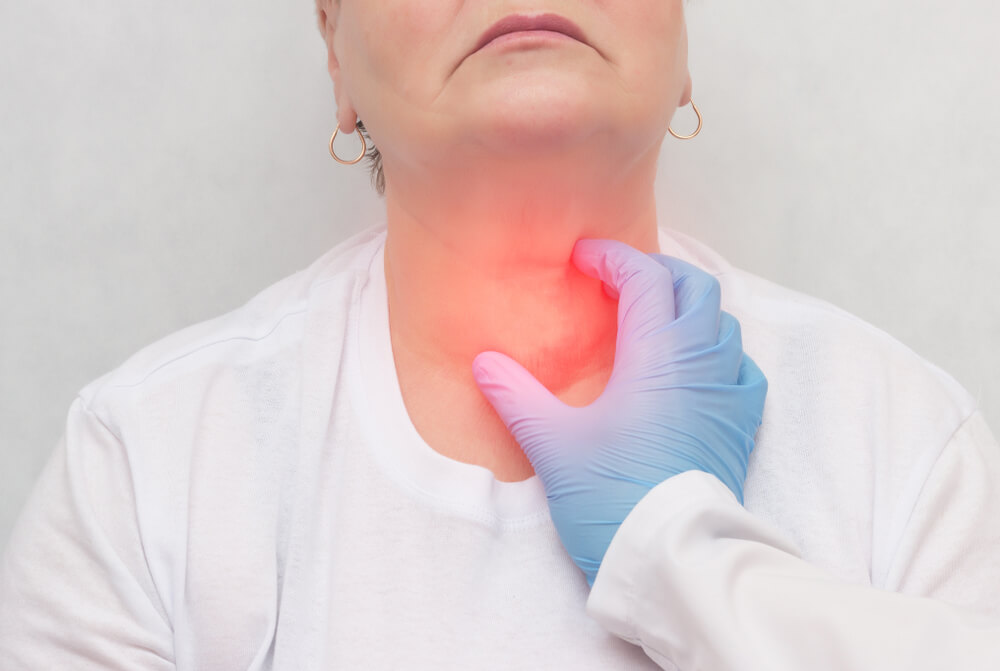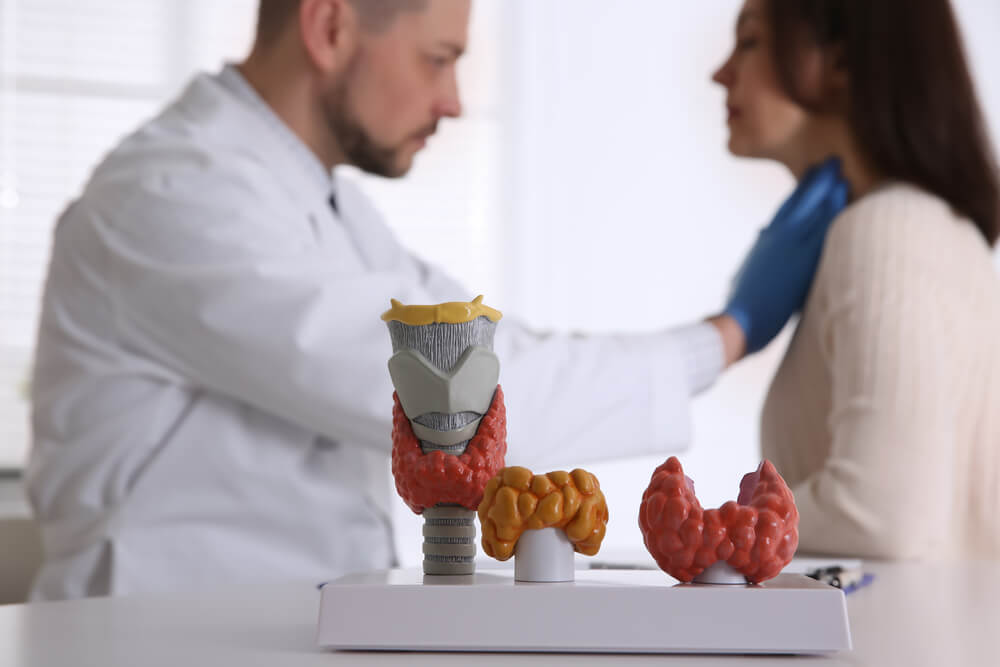Thyroid Cancer Awareness Month, observed annually in September, serves as a pivotal reminder of the importance of preventive care and early detection in the battle against thyroid cancer. While the month focuses on educating the public and healthcare professionals about the significance of routine thyroid screenings, its broader goal is to empower individuals to protect their health and the well-being of their loved ones.
In this comprehensive guide, the team at Advanced Surgical Physicians delves into the world of thyroid cancer, exploring its different types, risk factors, diagnostic processes, and the proactive measures you can take to ensure early intervention and effective treatment.
Thyroid Cancer Awareness: A September Initiative

Thyroid Cancer Awareness Month, distinct from World Thyroid Day, observed globally on May 25, is crucial in emphasizing the significance of screenings for individuals with risk factors or symptoms of thyroid cancer. Early detection is a powerful ally, enabling timely intervention and improved health outcomes. Furthermore, the month carries a broader educational purpose for the general public and healthcare professionals. Those observing the month will also wear the teal/pink/blue thyroid cancer ribbon during this time.
The Focus of Thyroid Cancer Awareness
Thyroid Cancer Awareness Month primarily revolves around the following fundamental principles:
- Finding it early: Routine thyroid screenings are paramount. Early detection equips those with thyroid cancer to seek prompt treatment and experience more favorable health outcomes.
- Continuing treatment research: While many forms of thyroid cancer are treatable if detected early, more research is needed to develop effective treatments for rarer types of the disease.
- Building a community: The month encourages building connections with healthcare professionals and patients alike. This involves fostering support groups, organizing fundraising events for research, and conducting educational programs to enhance the knowledge base of healthcare practitioners.
Varieties of Thyroid Cancer: Understanding the Differences
The impact of thyroid cancer on an individual’s body can vary significantly based on the type of cancer that develops. Here, we explore the distinctive attributes and challenges associated with different forms of thyroid cancer:
Papillary Thyroid Cancer
Papillary thyroid cancer ranks as the most prevalent form of thyroid cancer. While it tends to be the least lethal, it is also the most common. This type is characterized by slow growth and high treatability, even in cases where cancer has spread to the lymph nodes. As a result, papillary thyroid cancer boasts a low mortality rate.
Key factors influencing a person’s outlook include the age at diagnosis, tumor size and cell type, growth rate of the tumor, and the availability of treatment options.
Follicular Thyroid Cancer
Follicular thyroid cancer is more common in regions where iodine deficiency is a concern, primarily in developing countries with limited access to iodine-rich foods. Like papillary cancer, follicular cancer has a slow growth rate and is generally treatable. In advanced stages, it may spread to other body parts, such as bones or lungs, albeit rarely affecting the lymph nodes.
Medullary Thyroid Cancer
Medullary thyroid cancer presents unique challenges as it is relatively more complicated to diagnose and treat. This form of cancer may remain undiscovered for an extended period, given its propensity for rapid spread throughout the body.
Anaplastic Thyroid Cancer
Anaplastic thyroid cancer is a rare and highly aggressive form of the disease. This type spreads rapidly to various body areas and is often diagnosed in advanced stages, making treatment challenging.
The initial sign of thyroid cancer typically involves the presence of a lump or swelling in the neck. Other symptoms may include pain in the front of the neck, persistent hoarseness or voice changes, difficulty in swallowing or breathing, and a persistent cough unrelated to cold or illness.
Assessing the Risk of Developing Thyroid Cancer
Several risk factors contribute to a person’s likelihood of developing thyroid cancer. A notable consideration is radiation exposure, especially during childhood, heightening the risk.
Additionally, a family history of thyroid disorders or thyroid cancer may increase susceptibility.
Women face a higher risk of thyroid cancer, with statistics revealing that women are three times more likely to receive a thyroid cancer diagnosis than men.
Thyroid Cancer Treatment: An Overview
The approach to treating thyroid cancer primarily depends on the tumor size and whether the cancer has metastasized or spread to other parts of the body. Treatments encompass:
Surgery
Surgery represents the most common form of treatment for thyroid cancer. The extent of the surgical procedure varies depending on the tumor’s size and location. A surgeon may perform a lobectomy, removing only part of the thyroid gland, or a thyroidectomy, which involves removing the entire gland. In addition, any nearby lymph nodes with cancerous cells are excised. Surgery is the mainstay for localized thyroid cancer, offering a high success rate.
Radioiodine Therapy
Radioiodine therapy involves ingesting a pill or liquid that contains a higher dose of radioactive iodine than used in diagnostic scans. The radioactive iodine is absorbed by the thyroid gland and cancer cells, effectively shrinking and destroying them. This therapy is safe, as the thyroid gland absorbs most of the radioactive iodine, minimizing exposure to the rest of the body.
Radiation Therapy
Radiation therapy utilizes high-energy beams to target and kill cancer cells, inhibiting their growth. External radiation therapy involves a specialized machine directing these beams at the tumor site. Alternatively, internal radiation therapy (brachytherapy) entails placing radioactive seeds in or near the tumor.
Chemotherapy
In the realm of thyroid cancer, chemotherapy is rarely employed. Intravenous or oral chemotherapy drugs are used to eliminate cancer cells and halt further growth. This treatment is reserved for a very small proportion of individuals diagnosed with thyroid cancer.
Hormone Therapy
Hormone therapy focuses on blocking the release of hormones that can drive cancer spread or recurrence.
Supporting Thyroid Cancer Awareness

Education is pivotal in Thyroid Cancer Awareness Month, and participation is key. Here are some steps you can take to support this vital cause:
- Prioritize Thyroid Screenings: If you have a thyroid condition or a family history of thyroid issues, ensure that you undergo routine thyroid screenings. These screenings are non-invasive and involve a physician examining your throat for abnormalities.
- Encourage Loved Ones: Advocate for your friends and family to perform routine thyroid screenings, even if they lack a family history of thyroid conditions.
- Prompt Action on Symptoms: Should you or anyone you know exhibit potential symptoms of thyroid cancer, such as neck lumps, voice changes, swallowing difficulties, or persistent coughing, prompt medical evaluation is essential.
- Advocate for Screening Initiatives: If there is a lack of advocacy groups or initiatives promoting regular thyroid screenings and supporting thyroid cancer patients in your region, consider spearheading one. You can also collaborate with organizations like the Thyroid Cancer Survivor’s Association to expand your support efforts.
- Participate in Clinical Trials: For those interested in advancing thyroid cancer research, explore clinical trials through platforms like ClinicalTrials.gov. Consult your healthcare provider regarding your involvement, especially if it affects your ongoing thyroid treatments.
Thyroid Cancer: A Highly Treatable Disease
When thyroid cancer is detected early, most of its forms are highly treatable. Timely preventive measures, such as routine thyroid screenings, assume paramount significance. These screenings become even more critical if you have a thyroid condition, a family history of thyroid disorders, or a history of radiation exposure.
If you’d like to learn more about prevention, screenings, surgery, and other treatment options, feel free to schedule an appointment with our experts.







